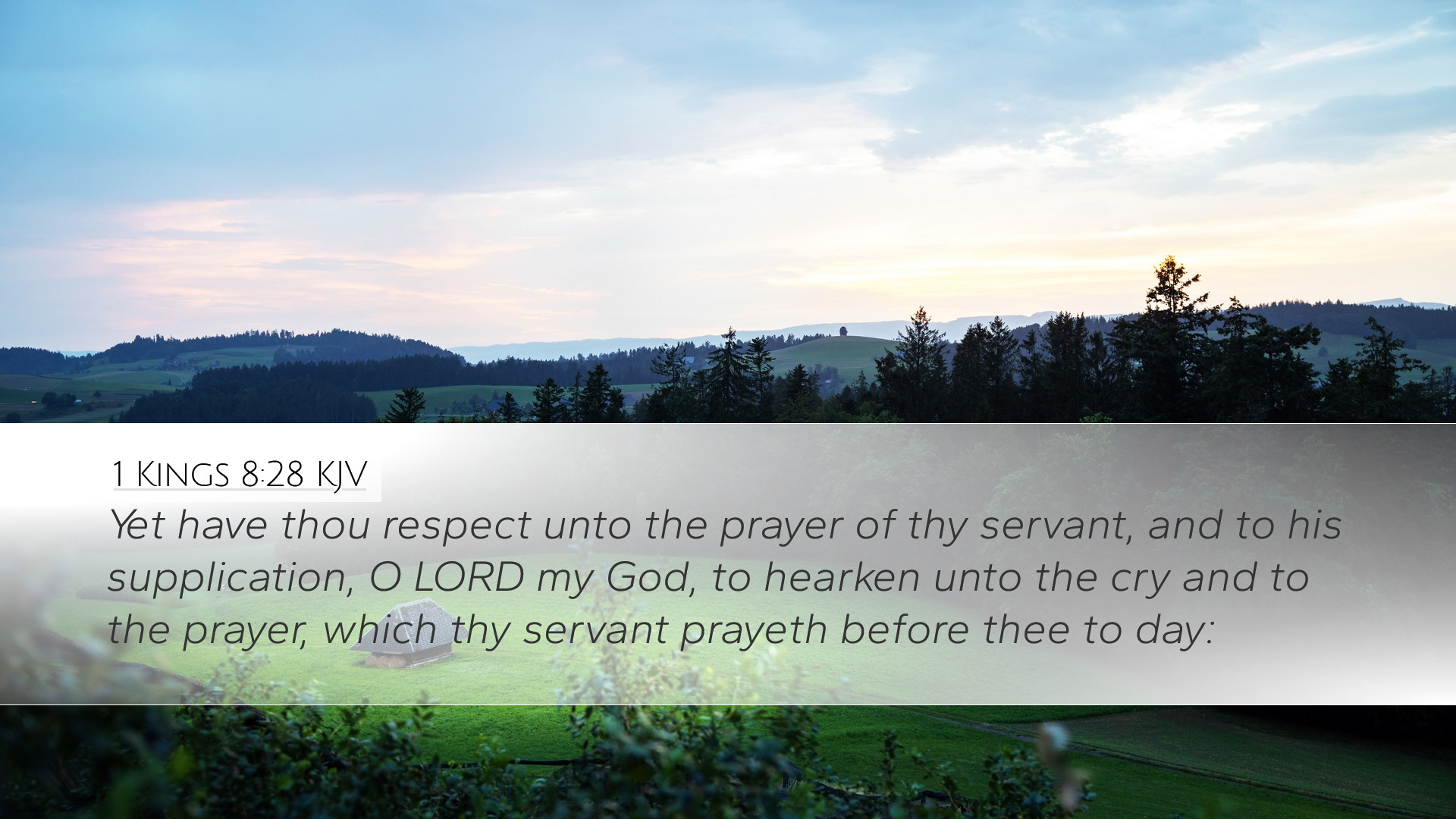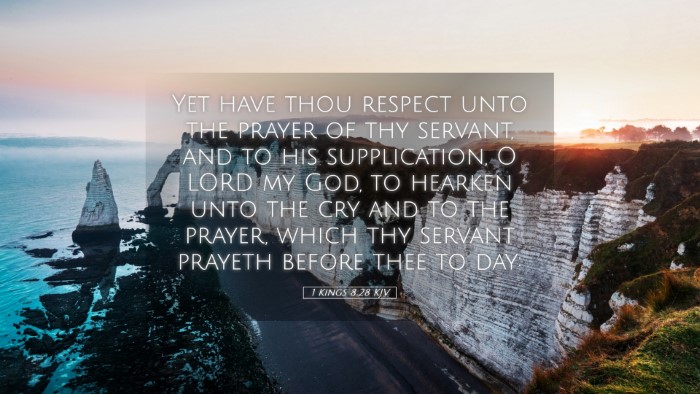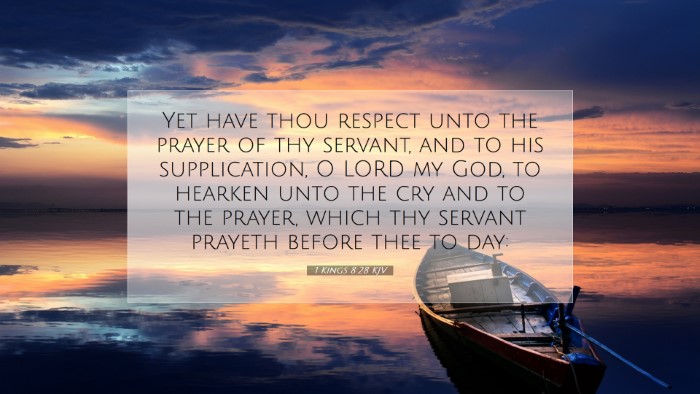Commentary on 1 Kings 8:28
Bible Verse: "Yet have thou respect unto the prayer of thy servant, and to his supplication, O Lord my God, to hearken unto the cry and to the prayer, which thy servant prayeth before thee today." (1 Kings 8:28)
Introduction
The verse under consideration is part of King Solomon's dedicatory prayer during the inauguration of the temple in Jerusalem. This momentous occasion marked the fulfillment of a promise to David and the establishment of a central place of worship in Israel. Solomon's heartfelt plea to God is a poignant expression of humility and reliance on divine grace.
Context and Background
1 Kings 8 chronicles the events surrounding the temple's dedication. Solomon, having completed the project his father David could not, stands before the assembled people of Israel and addresses Yahweh. The temple, a representation of God's presence among His people, provides a physical space dedicated to worship and sacrifice.
This specific verse, 1 Kings 8:28, reveals Solomon's awareness of his limitations and the profound need for God's attention to the prayers offered in the temple.
Insights from Public Domain Commentaries
Matthew Henry's Commentary
Matthew Henry emphasizes the humility and earnestness of Solomon's prayer. He notes the phrase "have thou respect," indicating that Solomon understood the need for God's favor to be upon him and his people. Henry comments on the importance of recognizing our dependence on God's mercy:
- Humility before God: Solomon's plea reflects an understanding that the greatness of the temple and the success of the nation rely upon God's willingness to hear their supplications.
- God's attendance: The acknowledgement that God must pay attention to the prayers signifies a deep recognition that human efforts are ultimately in vain without divine support.
Albert Barnes' Notes on the Bible
Albert Barnes provides a detailed examination of Solomon's appeal to God's omniscience and compassion. He highlights several key themes:
- Prayer as an act of faith: Barnes points out that Solomon's prayer exemplifies the belief that God listens to the plea of His servants, reinforcing the significance of prayer in the life of faith.
- Divine responsiveness: The promise that God would regard their prayers is foundational for the Israelites, establishing worship as a two-way communication with the Divine.
- National covenant: Solomon positions his supplication within the context of covenantal faithfulness, indicating that the temple serves as a reminder of God’s promises to Israel.
Adam Clarke's Commentary
Adam Clarke delves into the language of the verse and its implications for understanding God's nature. He underlines the significance of the plea for the Divine to "hearken" to prayer:
- God's near presence: Clarke remarks on the theological implications of God dwelling in the temple and the accessible nature of divine grace through prayer.
- Understanding Solomon's heart: He elucidates that Solomon not only seeks God's attention for individual needs but also for the communal sake of Israel, thus fostering a collective spiritual life.
- The posture of prayer: The prayer reflects an approach characterized by sincerity and persistence, serving as a model for all who come to God in supplication.
The Themes of 1 Kings 8:28
The verse encapsulates several vital themes that carry great relevance for contemporary readers:
- The Necessity of Prayer: It signifies the importance of turning to God in prayer and acknowledging His sovereignty over all situations in life.
- God's Mercy: The verse serves as a reminder that although God is transcendent, He is also profoundly personal and responsive to the prayers of His people.
- Divine Relationship: This moment establishes a channel of communication between God and His people, which is fundamental for a vibrant spiritual life.
- Faithful Worship: Emphasizing the role of the temple as a sacred space, the verse calls believers to recognize the importance of gathering for communal worship and supplication.
Conclusion
1 Kings 8:28 serves as a critical reminder of humanity's dependence on God for guidance, grace, and sustenance. As Solomon's prayer was a pivotal moment in Israel's history, it encourages today's believers to approach their prayers with humility, sincerity, and an assurance that God hears and attends to their cries. Through this verse, we are compelled to cultivate a deeper relationship with the Divine, understanding that prayer is not merely ritual but a vital lifeline to our Creator.


